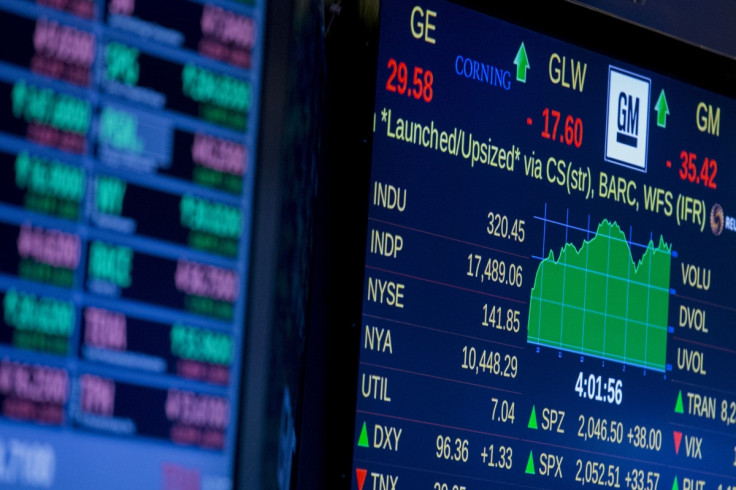Market report: Dow Jones falls to three-month low amid China and North Korea fears

Fears over the Chinese economy and global security threats after North Korea claimed it had tested a hydrogen nuclear bomb added to a tough start to the year for the Dow Jones industrial average which fell to a three-month low on Wednesday (6 January).
Already by 6pm GMT, the Dow had fallen by 203.67 points, or 1.18% to 16,955.78, the lowest since October. By the end of trading, it was down even more, by 252.15 points, or 1.5 percent, to 16,906.51.
Already for this month, the Dow is down 518.52 points, or 3 percent.
Elsewhere the Standard & Poor's 500 index sank 26.45 points, or 1.3 percent, to 1,990.26 while the Nasdaq composite index retreated 55.67 points, or 1.1 percent, to 4,835.76.
Chief market economist at the brokerage First Standard Financial, Peter Cardillo, said: "We're headed for a nasty sell-off. There's a lot to chew on. Of course the North Korea test, and oil prices hitting 11-year lows.
"Generally these types of bomb tests by North Korea or anyone else don't have a long-lasting effect on the markets, but it does heighten geopolitical concerns."
European markets also suffered jitters with London's FTSE 100 closing down 63.86 points, or 1.04% lower at 6,073.38, while Germany's DAX was down 0.9%, the CAC in Paris down 1.3% and the Spanish IBEX slipping 1.5%.
Alastair McCaig, an IG analyst, told the Telegraph: "Only three days into the new year and both the economic data and equity markets in China are giving investors plenty to worry about.
"The People's Bank of China has already suspended equity markets, closing them early for the day, injected 130bn yuan into the markets and has now weakened the currency. What will the fourth day of the trading year bring?"
The Standard & Poor's 500 index sank 26.45 points, or 1.3 percent, to 1,990.26.
The Nasdaq composite index retreated 55.67 points, or 1.1 percent, to 4,835.76.
© Copyright IBTimes 2025. All rights reserved.


















